There has been a rapid release of enhanced PV+battery storage solutions in the U.S. market of late, many of which were made earlier this year. Several larger developers or installers have aligned themselves with storage and battery suppliers, led by Sonnen and Tesla, helping drive residential adoption. At the same time, solar distributors are helping smaller installers sift through the myriad offerings for the best support.
“We are now seeing a big residential push in solar plus storage, but it depends on price. Lead acid is about $150 per kWh now versus $600 to $750 for lithium,” observes Eric Hill, the Senior Strategic Platforms Manager for Outback Power, based in Bellingham, Washington. “There still are hopes that lithium prices could drop 30% by 2020 to $250,” he adds. Hill’s remarks echo Bloomberg New Energy Finance’s (BNEF’s) recent Outlook 2016 report, in which it predicts the distributed battery storage market will grow to $250 billion by 2040, with price declines to be driven by scale, delivered largely from the e-mobility sector.
Stunning growth predicted
PV+storage adoption has been slight in the residential market thus far: Less than 0.1% of 2014 solar installations included storage, one analysis recounts. However, during 2015, there was a “243% year-over-year increase in energy storage systems (over all segments) in the U.S., with a total of 221 MW deployed,” according to GTM. The analysts forecast that the U.S. will add a “cumulative 5.86 gigawatts and 15.4 gigawatt hours of energy storage to the grid in the period 2016-2021,” with a total value of over $3 billion.
Florian Wessendorf, the Managing Director of Solar Promotion International, the company behind the Intersolar suite of events, suggests that consumers will be responsible for half of the total U.S. energy storage market by 2017. Navigant Research expects annual residential home storage revenues to hit $16.5 billion in 2024. California is expected to capture over half of the U.S. home storage business. A report released in May – by Clean Energy Group, California Housing Partnership, Center for Sustainable Energy and Growing Energy Labs – suggested that the addition of storage technologies to a solar installation may almost double solar electricity bill savings at about a third of the cost of the solar alone.
Market braces for Sonnen, Tesla
Falling battery prices are helping boost the adoption of home PV+storage, but the rapidly-moving price-vs-value constellation of offerings makes the installer’s job more difficult. Tesla is said to have scuttled its 10 kWh Powerwall offering in May because of the high price of the lithium-ion unit in comparison to other battery solutions. The company now will focus its storage efforts primarily on the 7 kWh Daily Powerwall version.
The Powerwall gained a huge residential market boost in December when Vermont utility Green Mountain Power ordered 500 units to begin offering them to residential customers with no up-front cost. In February, Tesla indicated that it had $800 million, or 38,000 systems, sold or on order. The company has said it will launch a new version of the Powerwall as early as July, which perhaps could take place during this month’s Intersolar show in San Francisco.
Among partners, SolarCity is the leading residential installer using the Powerwall. About three years ago, SolarCity CEO Lyndon Rive predicted that all residential installations for the company would include storage within five years.
Sonnen claims to have overtaken Tesla in storage system sales during first quarter 2016, selling 2,600 units to Tesla’s 2,500 units. Sonnen only began to offer its system in the U.S. in December – ranging from 4 kWh to 16 kWh. In February, Sonnen hit its 10,000th battery shipment globally, Sonnen’s Philipp Schröder told pv magazine.
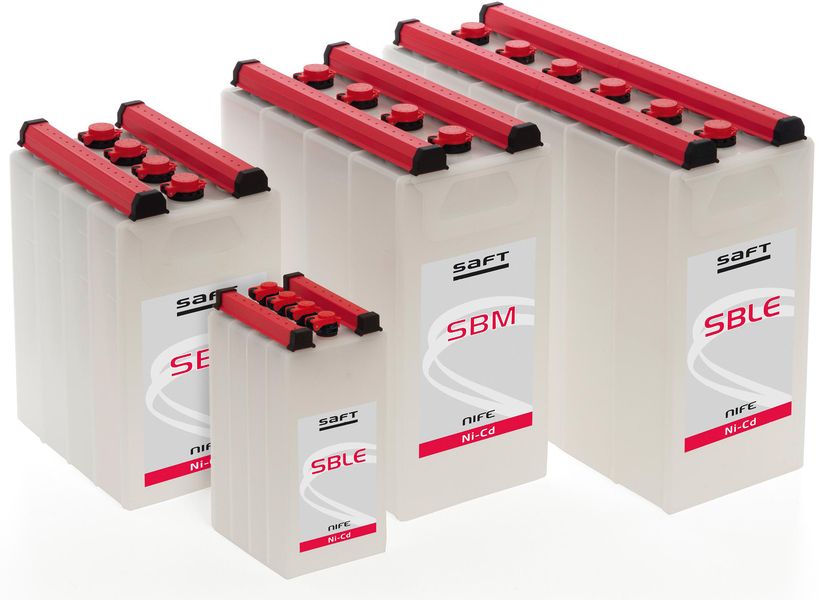
Photo: Saft
Image: Saft
One new feature of Sonnen’s system for the U.S. market is its time-of-use (TOU) energy management system. “We have this TOU module already in use across Germany, and now are introducing it in the United States,” says Michelle Mapel, the Director of Marketing for Sonnen.
Marketing arrangements Sonnen has forged this year include SolarWorld, roofer/PV installer PetersenDean, and clean energy financier Spruce Finance. SolarWorld is offering PV+storage using Sonnen batteries for PetersenDean clients.
In early June Sonnen revealed that GE Ventures had made an investment in the battery provider in the single digit million range, as a part of a round in which Sonnen raised a double digit million figure, from GE and existing investors. Analysts IHS noted that the move pointed to the success of Sonnen’s business model, having become the largest provider of residential battery storage systems in Germany, and rapidly expanding in the U.S., U.K., and Australia. “GE’s commitment is likely to help accelerate Sonnen’s commercial expansion, as it brings with it the power of GE’s established brand and needed up-front financing,” writes IHS. The analyst group forecasts behind-the-meter storage to be worth $2.5 billion by 2020, compound growth of 33% between 2016 and 2020.
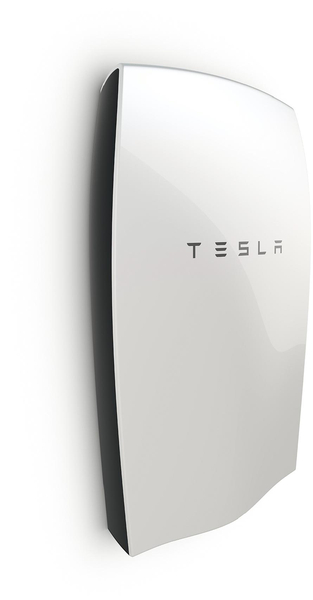
Photo: Tesla
.
Distributors: service support
Part of what determines which storage system is selected for a residential install is what is available locally, a variety of installers have said. Thus distributors, like Soligent, play a large role in filling the demand pipeline for PV+storage. Christian Adams, a sales director at Soligent in San Diego, says, “We are getting far more inquiries for storage, so we recommend some of the best known and most dependable, like Outback.” Others agree. “As a market, residential energy storage is still in its infancy, but vocal companies like Tesla have alerted consumers and have opened the door to competitors. Perhaps by the end of this year the demand will move more quickly,” says a representative for AEE in San Diego. “We recommend the storage solutions with the best support organizations, the best name recognition, and the best pricing,” he adds. Sonnen has already forged a distribution agreement with Sungevity and SK Solar USA.
Other leading solutions
Aquion Energy: Some U.S. state markets are booming for grid regulation reasons, like Hawaii, where “storage is the only good option,” notes Neal Roche, the Partnership Development Manager for battery maker Aquion Energy. The company ships a maritime container of its salt-water based batteries to Hawaii every month, he says.
Carnegie Mellon University and Aquion Energy will tap a $1 million grant from the U.S. Department of Energy (DOE) for the development of smart inverters that could be linked to a software system capable of monitoring and controlling the flow of power.
Austin Energy: Austin won $4.3 million in DOE funding to partner with Tesla, Samsung and SolarEdge, among others, to develop solar LCOEs of $0.14/kWh combined with storage. The award is part of DOE’s new $18 million Sustainable and Holistic Integration of Energy Storage and Solar PV (SHINES) program.
ElectrIQ: The company is offering its integrated IQ System including inverter, battery monitoring and software. The company has said it has accumulated 4,000 orders for the system, set for fourth quarter delivery.
Enphase: In October 2015, the microinverter maker began offering its Home Energy Solution, an integrated solution combining solar generation, energy control, and energy storage to Australian homeowners, the first country in its global roll out; Hawaii is slated for U.S. rollout soon. Distributors are said to have agreed to buy some 24,000 units during the second half of this year.
JLM Energy: The Energizr 200 gives the homeowner recommendations of when to use certain items in the home, including the most energy-draining appliances like the dryer, electric stove, pool pump, and air conditioning.
Nissan: Nissan will soon begin offering standalone battery packs for home energy storage. Available for pre-order in September, the xStorage line of battery packs was developed in concert with Eaton. Nissan also plans to use its Sunderland battery factory to recycle old power packs from its Leaf electric cars for use as residential storage devices.
Outback: Outback Power is promoting residential storage systems based on its EnergyCell Nano Carbon battery, which uses nano-sized carbon particles in the battery to help boost performance by 30 to 50% over standard lead-acid batteries, according to Mark Cerasuolo, the Managing Director of the company.
Saft: Oil conglomerate Total agreed in May to buy French battery maker Saft Groupe in a €950 million ($1.1 billion) deal, ratcheting up investments in clean energy by one of the world’s largest oil companies. Saft will become Total’s “spearhead in electricity storage,” Patrick Pouyanné, Chief Executive Officer of the French oil producer, said at the time. The purchase allows Total to speed up its expansion in renewables, which began in 2011 with its majority purchase of SunPower.
Simpliphi: The company is offering a new lithium battery chemistry, lithium-ferro-phosphate (LFP), which, unlike normal lithium, “is not at risk of thermal runaway or fire,” notes Dean Middleton, the Vice President of Sales for the company. Unlike most battery chemistries, the LFP also carries a 10 year warranty. Initially designed for military use,the Simpliphi PHI 2.6 Smart-Tech battery offers 10,000 cycles at a 100% depth of discharge.
SunPower/Sunverge: The company last year began offering PV+storage to residential customers of builder Meritage Homes, in the South San Francisco Bay Area. SunPower also planned last year to begin offering Sunverge’s advanced Solar Integration System (SIS) energy storage solutions to residential customers.
In February, Australian energy utility AGL Energy paid $20 million for a minority stake in Sunverge, the latest of several investors in the storage company. The two will install a series of residential PV+storage projects in the rapidly expanding Australian storage market.
Swell Energy/Verengo: Verengo Solar and Swell Energy have forged a partnership to offer integrated home energy storage for the residential market. Installer Verengo will become a preferred installer of Swell Energy’s solar battery products.
The recent BNEF Energy Outlook 2016, forecasts behind-the-meter storage capacities to increase from 400 MWh today to nearly 760 GWh in 2040 as it becomes “increasingly attractive” alongside PV.
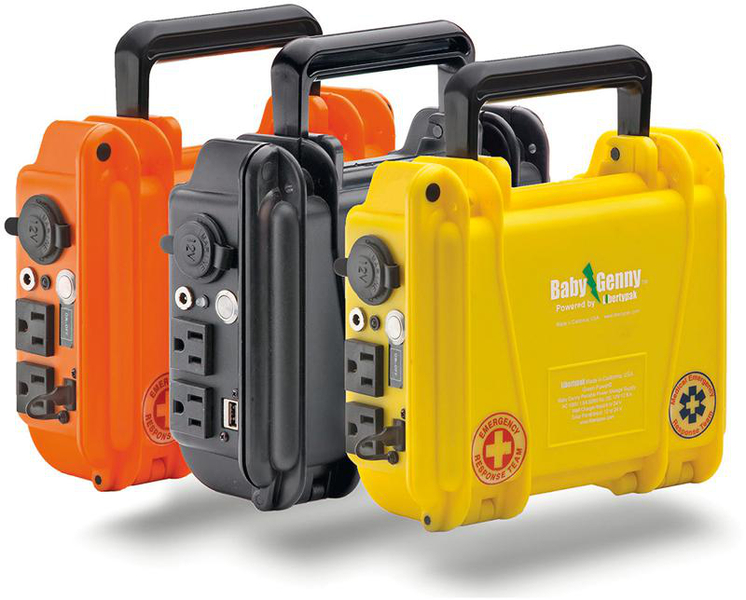
Photo: Simpliphi
Storage news from North America
SunPower, Sunverge collaborate on 4 MWh solar+storage project in New York
U.S. solar power company SunPower in June launched a new rooftop solar+storage bundle package designed to create a ‘virtual power plant’ in New York comprising 1.8 MW PV capacity and 4 MWh of battery storage.
The $15 million project is part of new York’s Reforming the Energy Vision (REV) effort, and sees Sunverge Energy Inc supply its lithium-ion battery storage systems, SunPower lease its solar panels and utility Con Edison manage the stored power’s grid feed.
The idea behind the project is to integrate more solar energy into the local grid, with Con Edison able to dispatch stored power to customers during peak periods while if a blackout occurs, the energy in the batteries can be used by the homeowners.
This pilot program will be available to more than 300 residential customers in New York’s Brooklyn and Queens boroughs, with utility Con Edison targeting owner-occupied, single-family homes in the first instance. Participants that sign up to lease SunPower’s solar systems (ranging from 7 kW to 9 kW) will receive a suitably sized battery from Sunverge – the company is offering its 6 kWh and 19.4 kWh storage systems.
The storage systems will be initially owned by Con Edison, enabling the utility to test real-time applications in the field and toy with peak shaving, frequency regulation and further technical capabilities. Customers have zero upfront purchase costs, and must simply take care of monthly repayments on the system.
According to a report by Energy Storage Update, Con Edison is currently working with the Fire Department of New York (FDNY) to get Sunverge’s battery technology approved in the state.
Electrovaya to supply $233 million worth of battery systems for residential energy storage
Big things are expected from the residential energy storage market, as it positions itself to take advantage of a shift towards residential solar and a rise in demand for electric cars. Canadian energy storage company, Electrovaya, is making a name for itself as a high-quality manufacturer of lithium-ion battery systems, beating off stiff competition to secure the signing of a Letter of Intent (LOI) for an estimated €199 million ($223 million) in sales.
The deal is for a period of three years, with an Original Equipment Manufacturer, which Electrovaya describes as “one of the largest and fastest growing Residential Energy Storage companies in the world.” The delivery is due to begin in the fourth quarter of 2016 or for early in the first quarter of 2017.
Electrovaya’s lithium-ion battery modules come with integrated cells and battery management systems (iBMS), and due to the company’s focus on safety and cycle life performance, they are well suited to residential energy storage.
“We are very excited with this LOI, as this was achieved against intense global competition,” said said Dr. Rajshekar DasGupta, VP of Business Development at Electrovaya. “Our multi-cell modules with laser welded tabs, built in sensors and iBMS are an attractive product for Residential Energy Storage. This LOI further defines our path to becoming the leading supplier of lithium ion cells and batteries to this fast growing industrial sector of Residential Energy Storage.” Electrovaya acquired Evonik Litarion in May, 2015. The deal saw the then relatively small Canadian firm take over a 500 MWh lithium ion cell manufacturing facility in Germany. As a part of the deal, Electrovaya entered into a licensing agreement to supply Evonik’s Separion ceramic composite separator technology, which is used to insulate battery cells.
This content is protected by copyright and may not be reused. If you want to cooperate with us and would like to reuse some of our content, please contact: editors@pv-magazine.com.
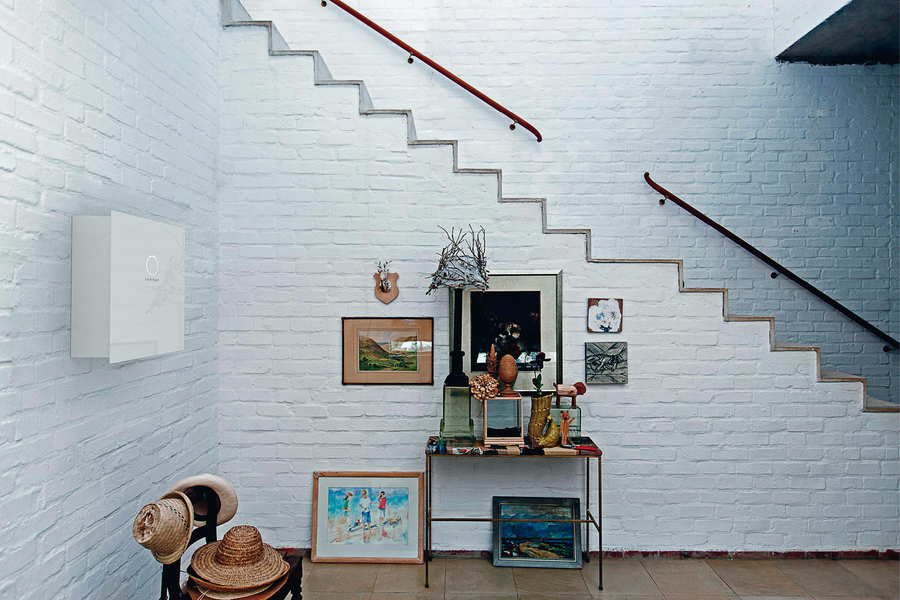
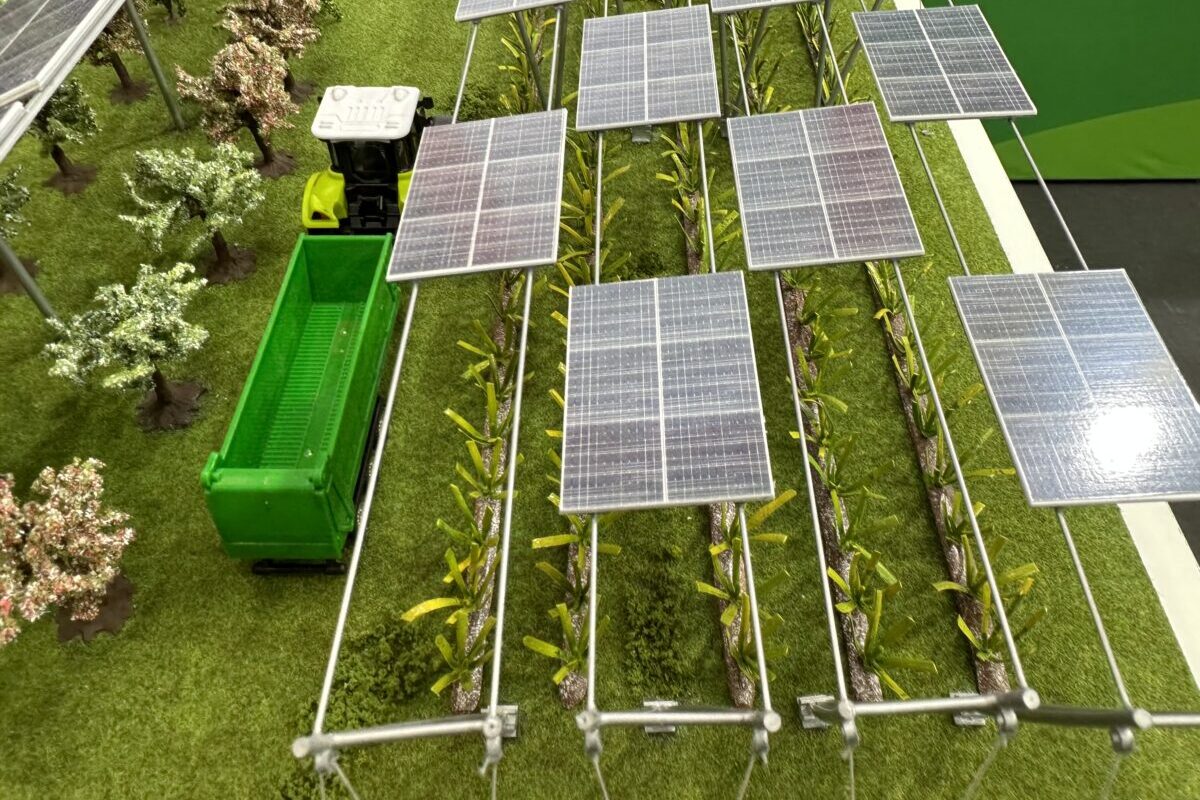

It is good to see that technology is making battery storage for power more effective and affordable. Ultimately, these batteries could do a lot to improve energy consumption in the country. Plus, it can help save money on a residential level. I appreciate you listing out some of the options for storing energy.